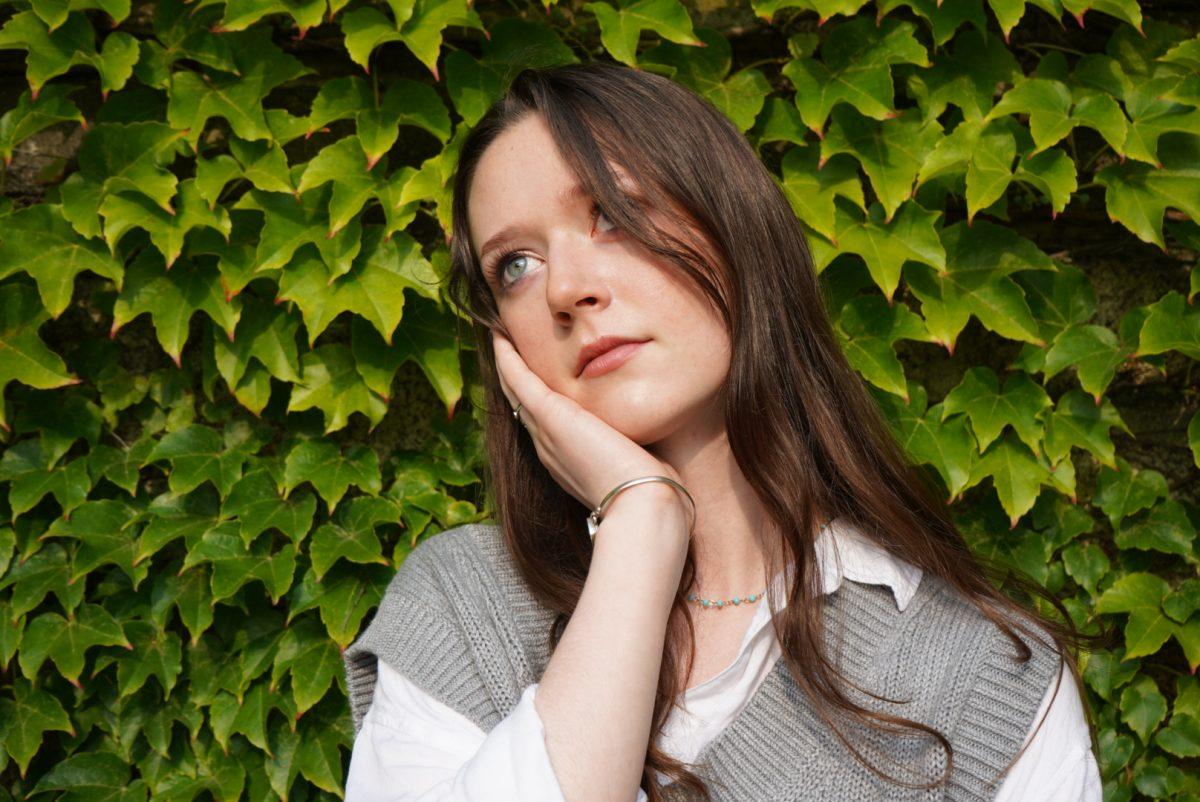Isabel Pless ’22 started posting clips of her songs on TikTok during the pandemic out of boredom. As a student who was fully remote during the 2020-21 academic year, she attended classes from home and felt unstimulated.
“[Music] was a way to process my emotions and to bring out a different creative aspect of myself that I wasn’t using during school,” Pless said. “I don’t know exactly why I started posting, I think I was just bored and wanted to see what would happen.’”
To her surprise, however, her TikTok account did well and she gained followers quickly. With over 85,000 followers, Pless’ videos regularly get up to nearly 400,000 views, providing support and validation.
“To have somebody confirm that my belief that I am good at [music] is true is just wonderful,” she said. “I’ve always wanted to connect with people, I think, as a career … and music allows me to do that in a way I never thought I would be able to, so it’s great.”
Her songwriting started off as poetry, which she wrote from a young age. In fifth grade, she took free guitar lessons and became infatuated with the idea of being able to sing and play her favorite songs. It was only when she was 12 that she decided to combine her writing and music.
“My parents are middle school teachers, but they teach [physical education] and history, so [music] was something I really found by myself,” Pless said. “I became fully obsessed with just the idea of being able to learn my favorite songs by myself and be able to sing them, … but when I was 12, Taylor Swift was a really big influence, and I was like, ‘I want to be a songwriter too,’ … and now it’s my favorite thing to do.”
As with many artists, she has her own favorite songs. Pless is proudest of “Family Tree,” the first song she released on Spotify, because it was her first public release and was about her family, which is important to her. However, when asked about her favorite, she said it keeps changing.
“A lot of the songs I haven’t released yet are probably my favorites, and it’ll probably keep changing because I think there’s something special about having a song that no one else has heard yet,” Pless said. “There’s one called ‘21’ that’s not out yet that was about my 21st birthday. All of my plans were changing. I was like, ‘Doing music as a career? I’d have to throw away my whole life plan that I had figured out before,’ and that was just really special because it’s so relevant to me now.”
That life plan she had was very different from the path she now wants to take. She planned to finish her cognitive and linguistic sciences major with an English minor, go to graduate school for speech and language and communication disorders, get her language and speech pathologist certification and then go into practice. But then her music started growing.
“I remember sitting down being like, I don’t know if I can in good conscience go through with that original plan without trying music, because that’s what I really want to do, and that was a hard decision because it’s really scary,” Pless said. “I mean, I’m someone who thrives off of planning, like, I’m here at Wellesley, are you surprised? … It’s thrilling and also terrifying.”
Of course, her major isn’t entirely separate from a career in songwriting. Pless is particularly interested in phonetics and introducing rhymes into her lyrics.
“I love rhyme schemes, and I love things that almost rhyme but not quite, so you wouldn’t really expect it, but when it pops out you’re like, ‘Oh, interesting, haven’t heard that before!’ [Linguistics] makes me think really hard about what sounds are similar, alliteration, definitely, what types of vowels sound nice next to each other … it’s definitely something I try and incorporate,” she said.
Since expanding onto streaming platforms like Spotify, she has gained 45,000 monthly listeners. Even though Pless is aware of how many people support her, she finds it hard to visualize such a large number in connection to actual people. However, Spotify’s artist interface has unique tools that help humanize her following, such as the ability to see what playlists users are adding her songs to.
“One of my favorites was ‘Eldest Daughter’ ended up on [a playlist] called ‘Jo March’s dialogue in Little Women,’ and that made me feel really good,” she said. “It makes me feel so happy that people take what I make and can laugh at it, but also, I think I won’t be able to articulate it until I play a show and see people in person because right now it’s kind of like it exists in the ether.”
Despite the currently intangible nature of her following, Pless is still grateful for the support and how far she’s come.
“I just have to stop and think about where I am and think about what high school me would be thinking right now, and that’s a really powerful, moving experience … I’m really grateful that so many people at Wellesley have reached out and want to talk about my music.”






